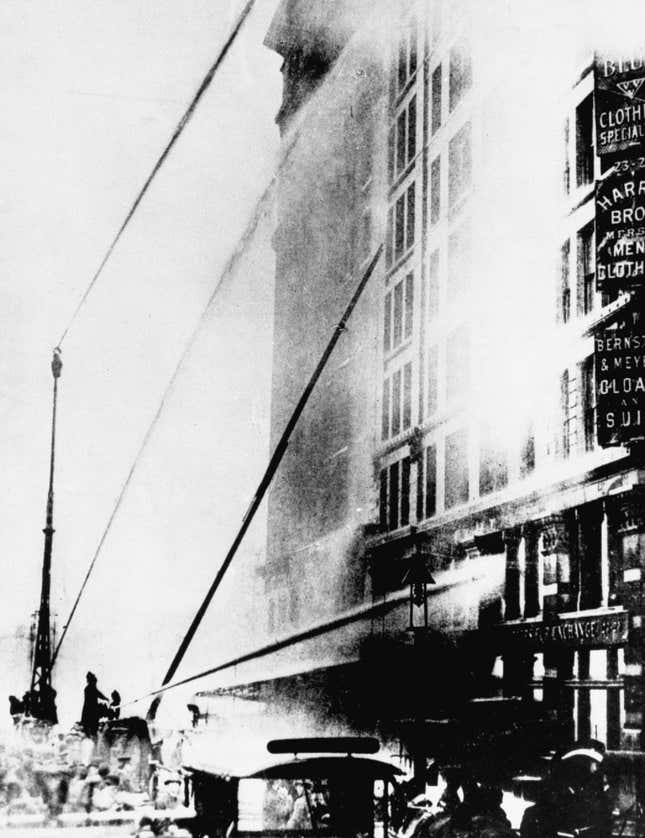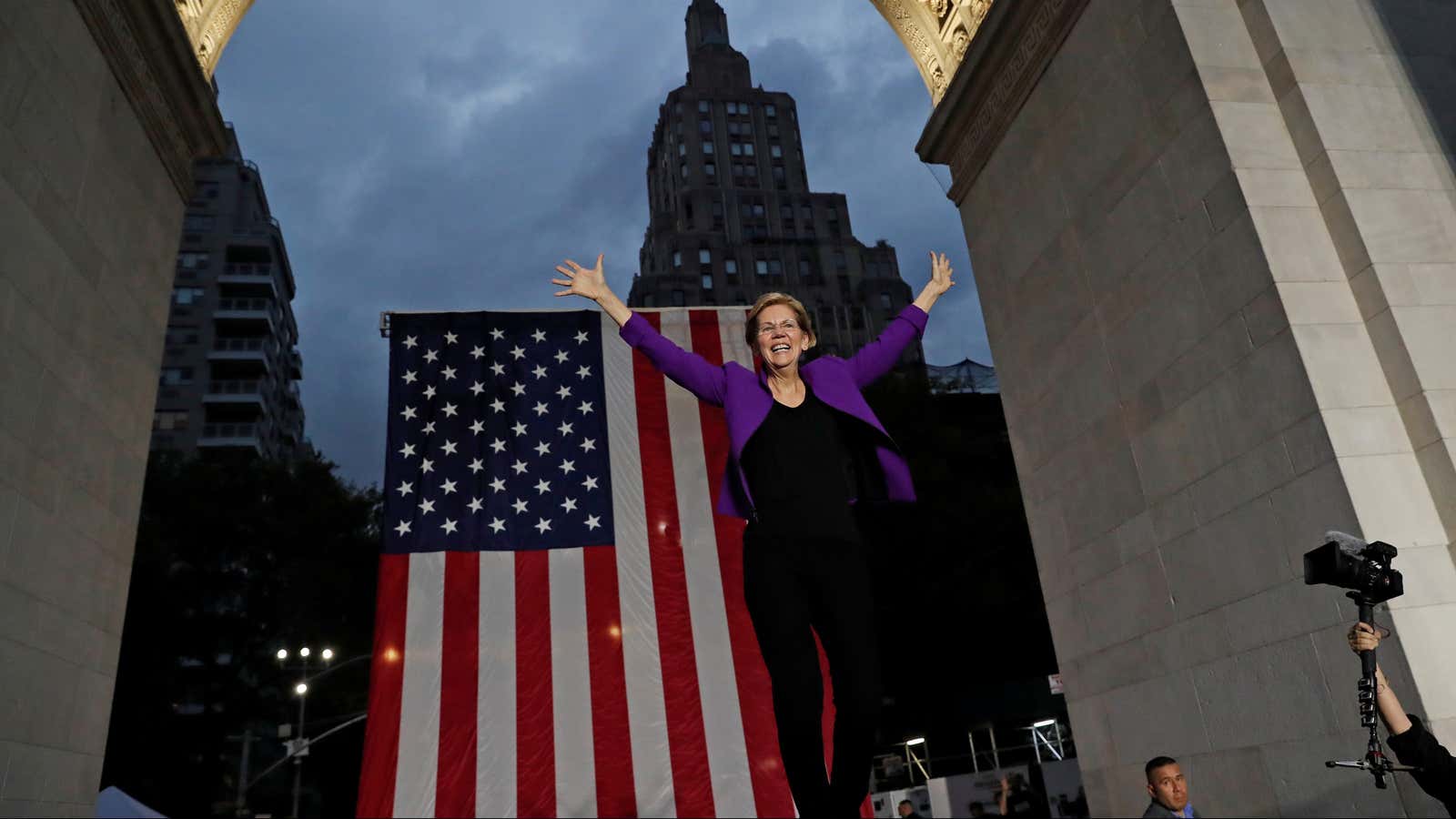In a rally at New York’s Washington Square Park that drew thousands, Elizabeth Warren began a speech about corruption in current American politics by recalling a horrific fire at a garment factory more than a century ago.
“It took 18 minutes for 146 people to die. Mostly women. Mostly immigrants, Jewish and Italian,” the Democratic presidential candidate said yesterday. “Mostly people who made as little as $5 a week to get their shot at the American dream. It was one of the worst industrial disasters in American history.”
The Triangle Shirtwaist Factory fire of March 25, 1911 broke out just a short distance from where Warren stood. The disaster galvanized the US labor movement, inspiring the work of one woman in particular, Frances Perkins, a reformer who would go on to become US labor secretary under president Franklin D. Roosevelt. Warren described how Perkins and the women garment workers brought “big, structural change” to the federal government, casting her own campaign as part of that tradition.

The garment industry was central to the labor movement even before the fire. In 1909, for instance, workers led by a 23-year-old Ukrainian immigrant named Clara Lemlich staged a strike that became known as the Uprising of the Twenty Thousand. The Triangle Shirtwaist fire increased that urgency.
Perkins, already a labor activist, witnessed the disaster firsthand, watching women jump to their deaths from the building’s top floors to escape the flames. With help from allies, she went on to successfully enact several state labor reforms. When Roosevelt was elected governor of New York in 1928, he appointed Perkins the state’s industrial commissioner. Five years later, after Roosevelt had become president, he asked her to be US labor secretary. She said she would take the job only on condition that he back her policy priorities. He did, and she became the first woman to serve in a president’s cabinet.
The policies she was instrumental in enacting were sweeping. They included the introduction of Social Security, a national minimum wage, unemployment benefits, worker’s compensation, the 40-hour work week, and the ending of child labor. The Triangle fire, she once said, was “the day the New Deal was born.”
Warren has positioned herself as a similar champion of workers’ rights, even winning the endorsement of the Working Families Party, which had endorsed Bernie Sanders, one of her Democratic rivals, in 2016. In her speech, she said that even though officials were aware of deplorable factory conditions before the Triangle tragedy, they didn’t act. She blamed greedy factory owners, who used their wealth to keep change at bay, likening it to the present moment. “Take any big problem we have in America today, and you don’t have to dig very deep to see the same system at work,” she said. “Climate change. Gun safety. Healthcare.”
This system can be fixed, she said, describing the changes that Perkins and her supporters brought about. She called the Triangle fire “a story about power,” and of what happens when the rich use the government for their own benefit.
“But what happened in the aftermath of the fire is a different story about power,” she said. “A story about our power. A story about what’s possible when we fight together as one.”
